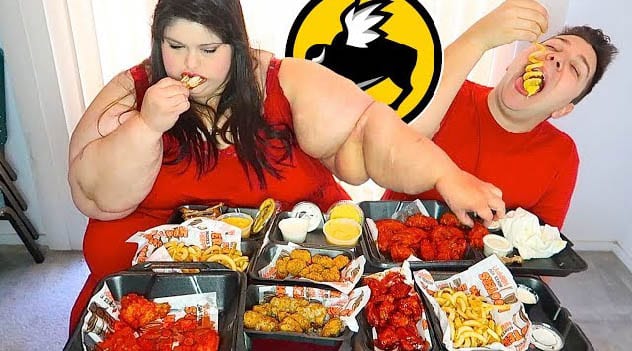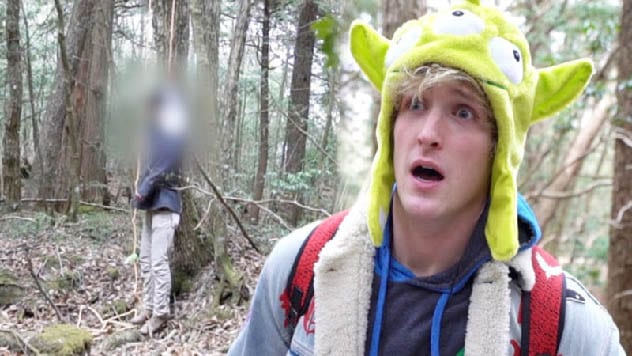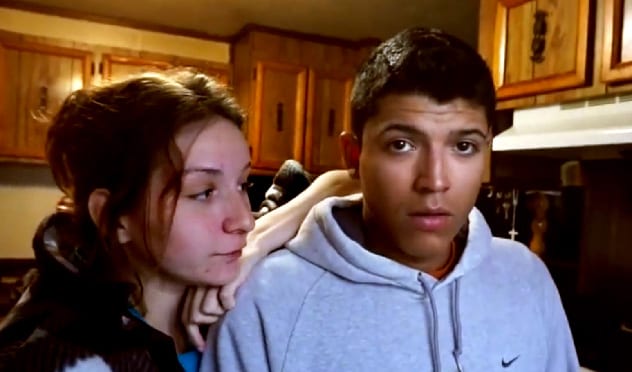Top 10 Crazy YouTube Channels Where People Risk Their Lives In a USA Today article, YouTube was quoted as saying, “If you are under 13 years of age, then please do not use the service. There are lots of other great websites for you. Talk to your parents about what sites are appropriate for you.”[3] Really? How many children are going to inform their parents that what they’re watching on YouTube is too mature for them? Zero. Kids turn to YouTube for information the way their parents utilize Google. A Protect Young Eyes survey of high school students found that when given the option to choose their No. 1 online activity, teens choose YouTube over social media and gaming at a 3-to-1 ratio. Among tweens and teens, YouTube–not Instagram, Snapchat, or Tik Tok–is the most-utilized online platform.[4] Online video usage has more than doubled in four years. The percentage of adolescents who watch online videos “every day” has gone from 24 percent to 56 percent among 8- to 12-year-olds and from 34 percent to 69 percent among 13- to 18-year-olds. And the amount of time each age group spends watching those videos has gone from 30 minutes a day to about one hour a day on average. (Most parents can acknowledge that one hour is on the low side.)[5] 10 Disturbing Channels From The Weird Part Of YouTube As of January 2020, a whopping 82,248 videos are viewed every second (this stat is updated daily). And 400 hours of submitted video are received every minute. YouTube can’t filter everything because there’s simply too much, and there aren’t any actual humans monitoring what is coming in. A USA Today review, for example, found plenty of sexualized or violent cartoons that weren’t restricted to adults. Until YouTube or Google is notified about such content, it will remain on the site. Jill Murphy, vice president and editor-in-chief of Common Sense Media, says there is no easy fix. One of YouTube’s biggest problems is its inability to control a child’s search results.[6] “Searching YouTube is essentially like searching Google,” explains Murphy. The results are not only looking to offer you accurate information on what you’re looking for, but also suggest some unrelated, but often tempting, things to watch. With so much content and so many options, it can be hard for any age to stay focused.” So what are impressionable children watching on YouTube? Plenty! Here are just 10 unsettling examples of inappropriate content.
10 A Frighteningly Thin Beauty Vlogger
Eugenia Cooney has been uploading beauty and style tutorials since June 2011. But while the 25-year-old initially garnered subscribers with makeup and fashion reviews, it was something very different that later brought curious viewers to her platforms: at 5’7” tall, she weighs a mere 86 lbs.[7] In 2015, commenters on Cooney’s videos began commenting about her dwindling frame and suspected eating disorder. The comments about her appearance took on a life of their own, and by the end of 2015, Cooney’s video’s were receiving more dislikes than likes. Concerned viewers petitioned YouTube to ban Cooney’s content, alleging that she was promoting eating disorders and negatively influencing impressionable young followers. One Change.org petition (and there were several) received more than 20,000 signatures. “Some people are saying I’m, like, a bad influence on girls,” Cooney said in a video response to the controversy.[8] “I just want you guys to know, like, I have seriously never tried to be a bad influence on YouTube or to influence anyone badly. I would never want to do that. I have never told anyone to try to, like, lose weight or to try to, like, change the way they look or to look like me.” Supporters claim that if Cooney was anorexic or bulimic, she would show other signs, like decaying teeth or unhealthy hair and nails. They propose that she just has “crazy high metabolism.”[9] Others aspire to be “Eugenia Cooney skinny.” In 2018, Cooney was suspended from Twitch for a nip-slip violation.[10] In February 2019, she took a five-month hiatus from social media. Skinny as ever, she was back in action by July 2019 and continues to deliver new videos to 2.4 million subscribers.
9 A Disgusting Waste of Food
On the other end of the spectrum are the mukbangers (we covered the worst of them here). These YouTubers buy copious amounts of food to eat on camera. While some might ingest an entire fast-food menu in one sitting, many leave much of the food to go to waste. Nikocado Avocado, with 1.83 million subscribers, is perhaps the worst offender. Each episode features the former vegan having a mental breakdown while sitting behind mountains of unhealthy processed foods. He nastily inhales an obnoxious portion of the food while crying and whining, then he goes off the rails and destroys an even more-obnoxious portion–crushing it with a broom or pouring something inedible onto it.[11] It’s a disgusting waste of perfectly good food. In 2018, an estimated 820 million people did not have enough to eat, according to the World Health Organization (up from 811 million in 2017). Efforts to reduce the number of babies born with low birth rate and the number of children who are stunted are moving too slowly to stop the rise. Despite these challenges, obesity continues to increase in all regions, particularly among school-age children and adults. Young YouTube viewers learn little of world hunger and too much about excess and waste.[12]
8 The Body of a Suicide Victim
YouTuber and internet star Logan Paul has 21.1 million subscribers.[13] As of January 2020, his channel has received 4.8 billion views, placing him among the top 140 subscribed channels on YouTube.[14] Paul, 25, has become quite the controversial character. He participated in the Tide Pod challenge, tasered dead rats, and attempted CPR on a fish he removed from a pond. But it was the dead body video that caused the biggest pushback. Paul’s YouTube channel had more than 15 million subscribers (mostly minors) when the “suicide forest” scandal hit. In 2017, Paul and team visited Aokigahara forest at the base of Mount Fuji–a site that has recorded hundreds of suicides and suicide attempts–and filmed their encounter with an apparent suicide victim: they shot footage of a man’s body hanging from a tree. “Did we just find a dead person in the suicide forest? This was supposed to be a fun vlog,” Paul, in a ridiculous green hat, said to the camera. The video was uploaded to YouTube.[15] Paul “censored” his video, titled “We found a dead body in the Japanese Suicide Forest…,” by issuing a warning at the beginning, blurring the victim’s face during closeups, and providing suicide hotline information. He also chose to demonetize the video. But none of these efforts made up for the fact that he videotaped a corpse and shared it with his young followers. More than 6.5 million people viewed the footage over the next 24 hours. Surprisingly, it was Paul, not YouTube, who eventually took down the video. “I should have never posted the video, I should have put the cameras down,” he said in a video apology. “I’ve made a huge mistake; I don’t expect to be forgiven.”[16] The apology video garnered 52.8 million views and made the YouTuber even wealthier. He earned $14.5 million between June 2017 and June 2018, up 16 percent from the previous year, and a spot on Forbes’ annual Highest-Paid YouTube Stars list.[17] And it was kind of awful when Paul posted his “comeback” video, pushing merch and bragging about gaining three million subscribers while on his three-week break in which he said he was “lit as fuck.”[18] So were there no consequences for Paul’s airing of a dead body? Experts say YouTube is as much to blame as Paul is. “YouTube encourages stars like Paul to garner views by any means necessary,” Wired magazine wrote in January 2018, “while largely deciding how and when to censor their videos behind closed doors.” Shortly after this article, YouTube announced it had removed Paul from Google Preferred, its top-tier advertising program that allows creators to have access to revenue from premium advertisers.[19] Interesting Note: Just hours after Paul’s suicide forest video aired, his younger brother Jake–equally wealthy and controversial–uploaded “I Lost My Virginity” for his younger audience.
7 Solicitation of Child Pornography
The most popular YouTube channels involve gaming, beauty and, of course, music. Millions of young people flock to channels like Ariana Grande’s or Justin Bieber’s. Musician Austin Jones was a YouTuber from 2007 to 2017. The singer/guitarist was 14 years old when he started his YouTube channel. Ten years later, he had accumulated more than 500,000 subscribers and 20 million video views. But he won’t be remembered for his music. In May 2015, Jones came under fire for contacting underaged female fans online. He solicited videos of the young girls twerking. He admitted to doing so and apologized for his actions but he denied that nudity was involved. In June 2017, Jones was arrested on two counts of producing child pornography. He had persuaded and instructed an underage female fan to make sexually explicit videos of herself. In February 2019, Jones pleaded guilty to coaxing multiple female minors to send sexual videos of themselves to him. YouTube immediately terminated his channel. Jones (26 years old but still looking like a teenage boy) was sentenced to 10 years in prison.
6 Racism and Anti-Semitism
Felix Kjellberg, better known as PewDiePie, is a Swedish YouTuber. He registered with YouTube in 2010, and by 2013 had the most-subscribed channel on the site–a record he held through 2019. His 104 million subscribers have viewed his video games, vlogs, comedy shorts, and music videos more than 25 billion times. (He was the first individual creator to reach the 100 million subscribers milestone.)[20] In 2016, Time named him one of the 100 Most Influential People in the World.[21] PewDiePie makes a lot of money on YouTube, and YouTube makes a lot of money from him. But their relationship has had its ups and downs. In 2017, YouTube canceled the creator’s YouTube Red show after racist remarks and behaviors. In one episode, PewDiePie discussed how the website Fiverr lets users hire freelancers to perform tasks for $5. He claimed that his intent was to point out how the internet could be used to get people to do anything for a small amount of money. But when he paid men to hold a sign with an anti-Semitic phrase as a gag, YouTube removed him from Google Preferred advertising and Disney cut ties with him. The sign read, “Death to all Jews.”[22] Later, the YouTuber added some racism to his anti-semitism. During a live-stream broadcast of himself playing a popular video game, PewDiePie expressed frustration in a way that most people wouldn’t. “What a fucking nigger! Jeez! Oh my god! What the fuck? Sorry, but what the fuck?” He quickly realized what he’d said and added, “I don’t mean that in a bad way,” before laughing it off. Apart from removal of some games from his channel, the blunder didn’t cost the YouTuber more than some bad press. The 30-year-old has an estimated net worth of $30 million.[23] PewDiePie “took a break” in January 2020, but it wasn’t long before he was back online and adding to his fortune.[24] 10 Pieces Of Celebrity Gold Hiding On YouTube
5 Animal Abuse for Entertainment
Animal videos have always been huge on YouTube. Lately, however, “pet fail” videos are going viral, and that’s not a good thing. What is intended to be funny can actually be cruel. A surprising number of pet fail videos show animals in distress. Impressionable young people are replicating the pranks (on YouTube, Tik Tok, Instagram), and the long-term impact they have on pets may be harmful.[25] Under its “violent or graphic content” policy, YouTube explicitly bans animal content “where there is infliction of unnecessary suffering or harm deliberately causing an animal distress.” The viral pet fails appear to be excluded from this definition. Pet fails, which can rake in millions of views, seem harmless enough–cats being frightened by cucumbers, dogs getting stuck in random objects–but they may have a negative impact on the animals. A video of a cat reacting to tape on its paws garnered more than 375,000 views. Viewer comments express amusement. But the cats, desperate to find balance, look positively traumatized.[26] Apart from the immediate physical harm the animals may experience (from a fall, for example) is the potential long-term psychological or physiological harm. In a 2010 study, Nancy Dreschel, Associate Teaching Professor of Small Animal Science at Penn State, found that fear, and anxiety-related behaviors in pet dogs were likely to cause physiological stress response, which could ultimately contribute to increased disease frequency and severity and a shorter life span for the animal.[27][28] Pets are amazing. And they can provide an endless supply of cuteness and laughs without being put in harm’s way.
4 Cruelty Toward the Homeless
Spanish YouTuber Kangua Ren, aka ReSet, defines “harmless prank” differently than most people would. Ren was popular for accepting “challenges” from his 1.2 milion YouTube followers. “I do things to give a show,” reported Spanish news outlet El Pais. “People like morbid things.”[29] In early 2017, Ren put yet another one of those challenges into motion when he replaced the cream in Oreo cookies with toothpaste and gave them to a homeless man. Ren filmed and then posted a video of the man eating the tainted cookies, becoming sick, and vomiting. After uploading the video, Ren remarked online that he had given the man a 20 euro bill with the cookies. “Look at the positive side: this will help you clean your teeth,” he wrote. “I think you have not cleaned them since you became poor.” In May 2019, Ren was ordered to shut down his YouTube channel for five years and pay £20,000 to his victim (identified as Gheorge L., a man of Romanian origin). He was convicted of violating the moral integrity” of the Gheorge L. and sentenced to 15 months in prison. As a first-time non-violent offender, his sentence will likely be suspended.[30]
3 Underage Gambling
Trevor Martin and Tom Cassel, known on YouTube as TmarTn and Syndicate, are popular Counter-Strike: Global Offensive (CSGO) gamers.[31][32] In CSGO, players can exchange real money for the chance to obtain a modified weapon. The weapon, in turn, can become valuable virtual currency. Professionals gamers repurchase them for thousands of dollars. On their YouTube channel, Martin and Cassel regularly uploaded videos of themselves placing bets on CSGO Lotto and winning big cash prizes. But there was more to it than online fun and games. Martin and Cassel are co-owners of CSGO Lotto, and the gambling site was welcoming participants as young as 13 years old. Young people were quick to click videos like the now-deleted “How to Win $13,000 in 5 Minutes!” “I apologize to anyone who feels misled regarding the ownership of CSGO Lotto,” said Cassel, the company’s vice president. “I will always be more transparent from here on out.” But Martin, president of the company, did not apologize. “I created the site. I wanted to build something awesome for other people to enjoy, and I played on it,” he said in a 2016 YouTube video. “Obviously, on my end, me playing on Lotto rather than other sites gives me an advantage because it promotes my own site, but it is not immoral, there is nothing wrong with it. I am 100 percent honest.” The videos Cassel and Martin posted were described as “sponsored” by CSGO Lotto. They invited followers to put money into a website that they were themselves behind–a dishonest move in the YouTube community.
2 Second-Degree Manslaughter
In June 2017, a pregnant Monalisa Perez, 21, fatally shot boyfriend Pedro Ruiz III, 22, in a botched stunt that was caught on tape. The aspiring YouTubers, in an effort to attract more subscribers to their channel, promised viewers that they would deliver a new “crazier” stunt every week. The stunt that killed the 22-year-old? Ruiz held a 1.5-inch book in front of his chest while Perez shot him from point blank range with a .50-caliber Desert Eagle handgun. The shooting took place in front of 30 witnesses, including the couple’s 3-year-old daughter. In “practice” sessions leading up to the shooting, the couple tested various books in an abandoned building. Thirty minutes before they filmed the stunt, Perez–a self-described “family vlogger”–tweeted, “Me and Pedro are probably going to shoot one of the most dangerous videos ever. HIS idea not MINE.”[33] A transcript of the video reveals Ruiz speaking to the camera. “The most trustworthy person that I trust in this world is my girlfriend, Monalisa. So if I am going to die, I am pretty much ready to go to heaven right now.” The pair set up two cameras. Perez stood close to her boyfriend and pointed the gun about a foot away from the book. She became emotional and pleaded with Ruiz to not go through with the stunt. “Hey, this is the moment of truth, babe,” he told her. “I trust. It’s in, okay, I love you.” Before pulling the trigger, a crying Perez said, “I can’t do this, babe. I am so scared. My heart is beating…” She added, “Babe, if I kill you, what’s going to happen to my life? Like, no, this isn’t okay…I don’t want to be responsible.” Ruiz assured her he would be fine as long as she hit the book. The transcript ended with Perez pleading, “Stop. Babe, stop. Babe.” In her interview Perez told investigators: “I didn’t mean to hurt him, he was my everything. It wasn’t supposed to happen like this”.She told authorities that Ruiz was an adrenaline junkie who was intent on pursuing more and more dangerous stunts. She claims he told her that if he died, it would be doing something that made him happy. The county attorney said that while the stunt was “dreamed up, planned, and executed” by Ruiz, Perez had “wrongfully and tragically relied on his assurances that the stunt was safe. Perez was jailed for six months (plus 10 years of supervised probatiuon) after pleading guilty to second-degree manslaughter. Prosecutors said she was guilty of “culpable negligence that led to the tragic and completely avoidable death.”[34]
1 Adult Content Directed at Children
Parents can take the initiative to monitor their children’s viewing habits and install parental controls, but kids are pretty good at getting around such efforts. It would be nice to rely on YouTube to protect kids from adult content. That was the intent of YouTube Kids, which was created in 2015 with content specifically geared toward children ages 7 and up.[35] The channel/app enables parents to set time limits and block the search function. YouTube Kids adjusts content based on the age and individuality of each child’s profile. But the app has experienced problems since day one. After parents complained about kid content containing cursing, drug use, sexual language, and dangerous behaviors, YouTube went to work to correct the problem. It took three years, but in 2018, YouTube issued the following statement: “Content that misleads or endangers children is unacceptable to us. We have clear policies against these videos and we enforce them aggressively. We use a combination of machine learning, algorithms and community flagging to determine content in the YouTube Kids app. The YouTube team is made up of parents who care deeply about this, and are committed to making the app better every day.”[36] Nevertheless, the problems persist. A Netsanity article listed just a few of the more recent findings on YouTube Kids. Videos containing misogyny, suicide, stabbings, and school shootings:[37] When parents reported a nine-second clip within a cartoon that showed a man teaching kids how to slit their wrists (“Remember kids: sideways for attention, longways for results. End it!”), it took more than a week for YouTube/YouTube Kids to delete the video. The problem is that everything on YouTube Kids comes from YouTube itself. Honestly, any kid over the age of 7 isn’t interested in YouTube Kids content anyway–they prefer the more adult stuff on the main site. YouTube offers restricted modes of viewing to block adult or objectionable content, but most tweens are smart enough to get around them without their parents’ knowledge. Which is why Protect Young Eyes recommends that “kids younger than high school only have access to YouTube through a browser that has third-party-filter controls installed.”[38][39] The bottom line is this: YouTube is a social lifeline for kids.[40] “All of their friends are talking about it. Kids have devices at school. They’re going to watch it at school…so eliminating it without taking the time to talk about why something bothers you or hearing from your kid about why it’s appealing to them is not necessarily a path Common Sense [Media] would recommend,” Murphy says. “Teach your kids to live with it, rather than shutting it off.” 10 Terrifying YouTube Videos That Will Keep You Awake At Night
























